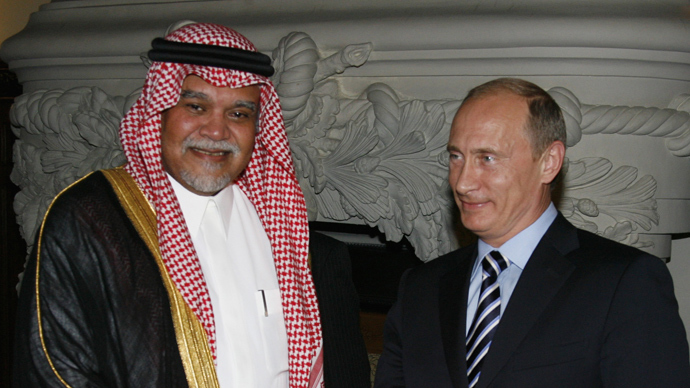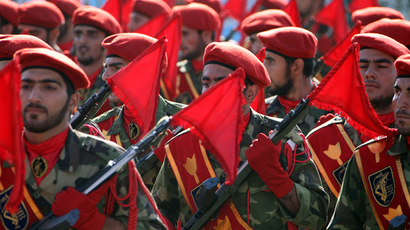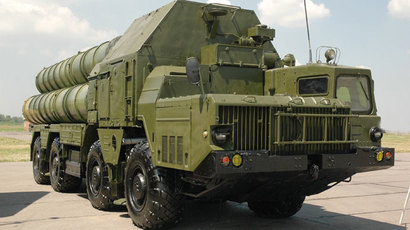Moscow ‘rejects’ Saudi ‘offer’ to drop Assad for rich arms deal

Moscow has said “no” to Saudi Arabia’s alleged proposal of a rich arms deal and protection of Russia’s gas interests in the Middle East in exchange for abandoning Syrian President Bashar Assad, according to Arab and European diplomats.
The proposal of $15 billion in weapons contracts was allegedly
made during the July 31 meeting between Russian President
Vladimir Putin and influential intelligence chief Prince Bandar
bin Sultan, Reuters reported.
Neither Moscow nor Riyadh has officially commented on the agenda
of the talks, but a Thursday AFP report revealed new details of
the negotiations.
According to an undisclosed European diplomat, Prince Bandar
proposed the deal and told Putin that "whatever regime comes
after" Assad will be "completely" in Riyadh’s hands.
The Prince reportedly stated that if the deal was accepted, Saudi
Arabia would not sign any contracts damaging Russian interests by
allowing Gulf countries to transport its gas across Syria to
Europe.
The terms included Moscow dropping its support of President
Bashar Assad, as well as not opposing any future Security Council
resolutions on Syria.
"President Putin listened politely to his interlocutor and let
him know that his country would not change its strategy," a
separate Arab diplomat told AFP.
Bandar bin Sultan then told Russian officials that the only
option left in Syria is a military one – and that they should
forget about the Geneva-2 international peace conference because
the opposition would not attend, the source said. Efforts to
bring about the conference – which has been put forth by the US
and Moscow – have so far been fruitless, mainly because of the
absence of unity within the opposition ranks.

Russia and Saudi Arabia - which traditionally buys its military
hardware from the US – have had a massive arms contract
frozen since 2008. Back then, the sides agreed that Moscow would
supply a huge assortment of equipment, including 150 T-90 tanks
and more than 150 attack helicopters, to the Gulf state.
According to sources within Russian arms exporters, the status of
the deal has not changed following the talks. The insider added
that Russia has not received any offers to purchase weapons from
Saudi Arabia.
"We know nothing about such intentions of the Saudi side,"
a senior source in military-technical cooperation told RIA
Novosti news agency.
Some Russian experts say Saudi Arabia acted as a US proxy in the alleged proposal, as it has been doing for the past two years of the Syrian conflict.
“Any direct involvement in the region by either the US or any former European colonial powers is perceived as an affront. But with the given arrangement, any initiatives by the influential, authoritarian regional super power (and Saudi Arabia is undoubtedly that) are taken for granted,” political analyst Igor Khokhlov told RT.
“The situation is nothing new,” he added. “Gulbuddin Hekmatyar’s Afghan mujahideen in the 1980s were being sponsored by the USA and Saudi Arabia in equal shares. But the Saudi role allowed the US to present the conflict as a war of liberation – not as a clash of two superpowers in the farthest reaches of the world.”
Others believe the media reports of a Saudi offer is nothing more than a hoax aimed at highlighting Russia’s stance on Syria in a negative way, adding that such a method is no way to “conduct diplomacy.”
“Clearly, this is stove-piping,” director of the Institute
of Oriental Studies, Vitaly Naumkin, told Interfax news agency.
“Its purpose is either to influence the position of the Syrian
authorities or, more likely, to discredit Russia. To sow doubt on
the fact that Moscow has a serious and reasoned position on
Syria, and to create the impression that Russia may change its
point of view in exchange for Saudi promises.”
Naumkin reminded that similar attempts were made previously.
There were reports in 2009 of that Barack Obama told then-Russian
President Dmitry Medvedev that Washington would change its
position on Iran if Moscow ended the halting of a US missile
shield program in Eastern Europe.
The meeting between Putin and Bandar came amid tension between
the two states over the conflict in Syria, with Russia accusing
the Saudis of "financing and arming terrorists and extremist
groups" fighting against Assad.














